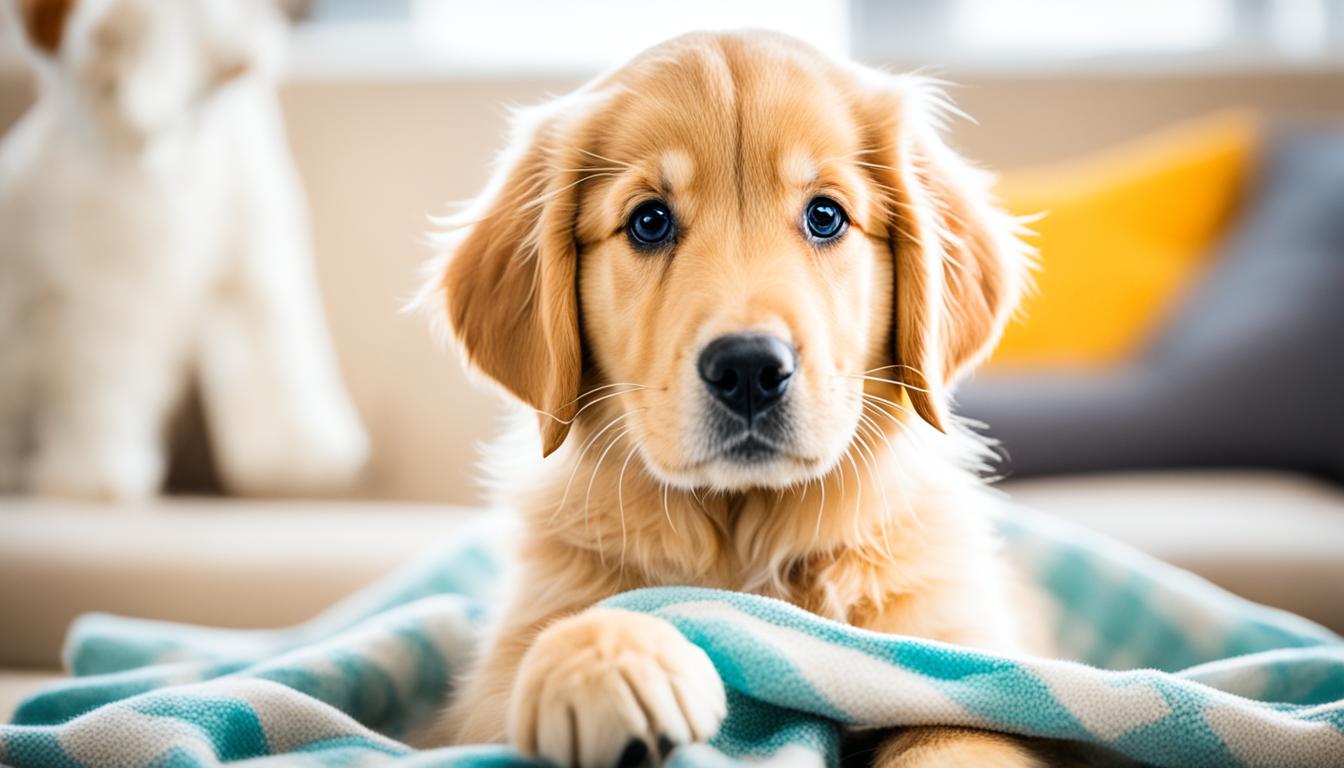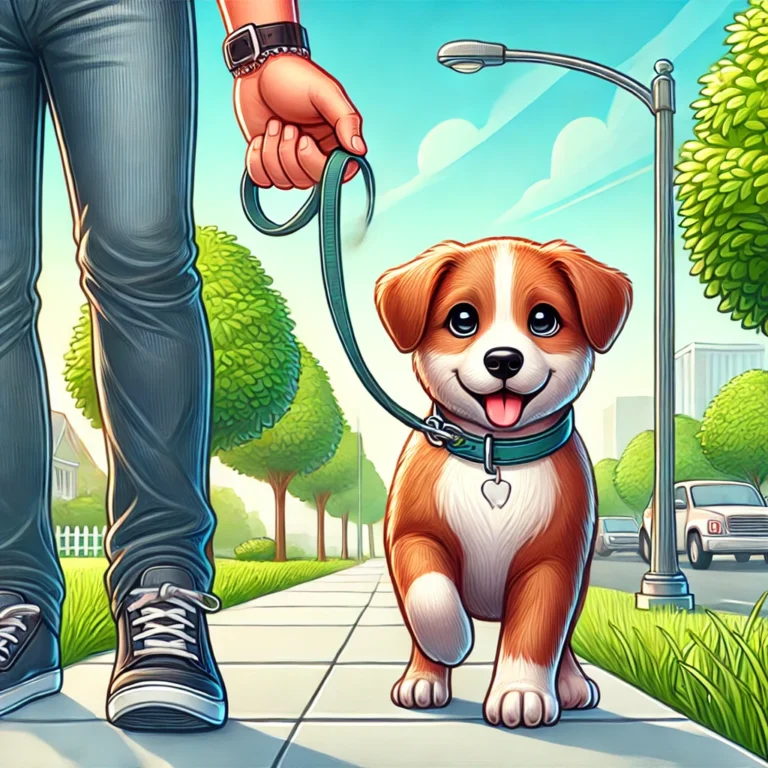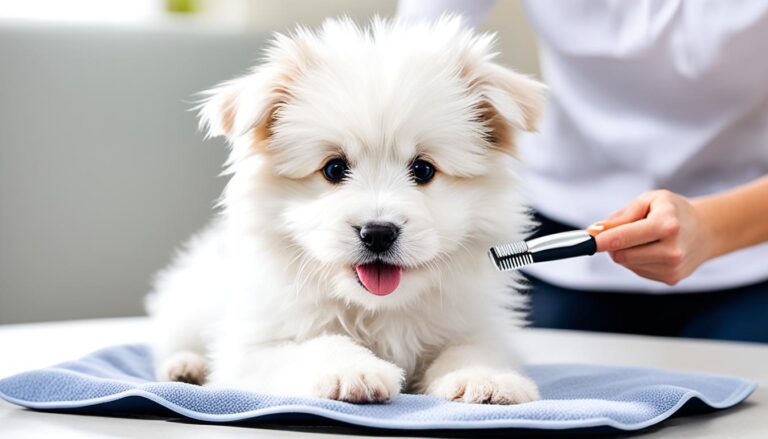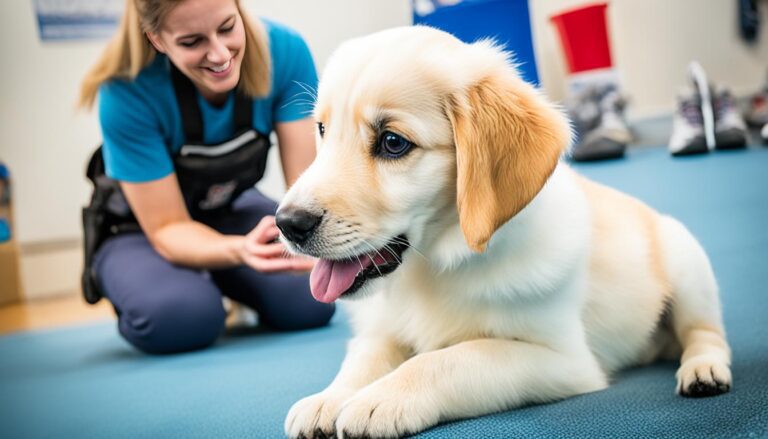Easy Train Puppy Tips: Success Simplified!
Puppy training can be quite easy when approached with the right techniques and strategies. Puppies are eager to learn, making it important to start their training as soon as they join your family. Every interaction with your puppy presents an opportunity for teaching and establishing good behavior from the beginning. Although basic training can begin as early as 8 weeks old, keep in mind that puppies have short attention spans, so it’s crucial to keep the lessons short and enjoyable.
Key Takeaways:
- Start training your puppy as early as possible to take advantage of their eagerness to learn.
- Keep training sessions short and fun to accommodate your puppy’s short attention span.
- Use positive reinforcement and rewards, such as high-value treats, to motivate and engage your puppy during training.
- Establish a daily schedule and introduce your puppy to socialization opportunities with other dogs and people.
- Remember that training is an ongoing process that requires consistency and reinforcement throughout your dog’s life.
Puppy Training Tips
When it comes to training your puppy, there are a few tips that can help make the process easier. It’s important to have a well-rested puppy before starting a training session. Use high-value treats as rewards to keep your puppy engaged. Training should initially take place in a familiar and distraction-free environment. Incorporating play breaks with puppy toys can also help keep your puppy focused and motivated. Consistency and positive reinforcement are key to effective puppy training.
“Consistency is key when it comes to training your puppy. Establishing a routine can help them understand what is expected of them and build good behaviors.”
During training sessions, it’s important to keep in mind that puppies have short attention spans, so keep lessons short and fun. Start with basic commands like sit, stay, and come, and gradually increase the difficulty as your puppy progresses. Remember to be patient and give your puppy plenty of praise and rewards for their efforts. This will help them associate training with positive experiences and increase their motivation to learn.
Training Tips:
- Start training as early as possible to establish good behavior from the beginning.
- Use positive reinforcement by rewarding desired behaviors.
- Keep training sessions short, frequent, and fun.
- Choose a distraction-free environment for initial training.
- Incorporate play breaks to keep your puppy engaged.
Remember that each puppy is unique and may respond differently to various training techniques. It’s important to be flexible and adapt your approach as needed. If you’re struggling with certain aspects of training or want more guidance, consider enrolling in a puppy obedience class where you can learn from experienced trainers and socialize your puppy with other dogs.
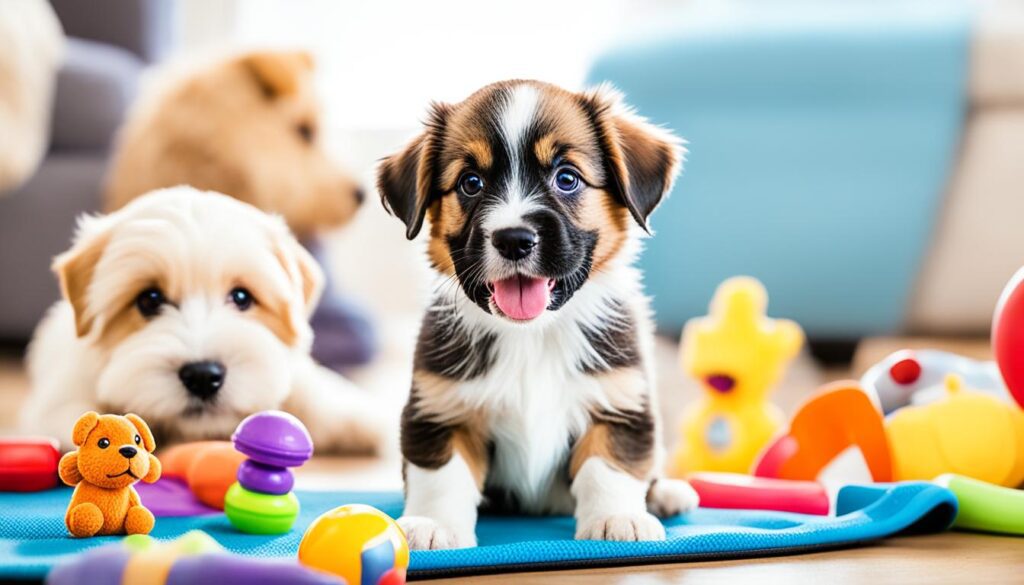
| Training Tips | Benefits |
|---|---|
| Start training early | Establishes good behaviors |
| Positive reinforcement | Motivates and encourages desired behaviors |
| Short, frequent training sessions | Matches puppy’s attention span |
| Distraction-free environment | Increases focus and learning |
| Incorporate play breaks | Keeps puppy engaged and motivated |
Puppy Training Milestones
Training a puppy requires understanding their developmental milestones and tailoring your training approach to their age and abilities. Here are some important puppy training milestones to keep in mind:
8 to 10 Weeks
This stage is crucial for helping your puppy acclimate to their new environment and establishing a daily schedule. It’s also the perfect time to start crate and potty training. Introduce your puppy to socialization by gradually exposing them to other dogs and people in a controlled and positive manner.
10 to 12 Weeks
Continuing with socialization efforts, focus on teaching appropriate chewing behavior during this period. Provide your puppy with a variety of chew toys and redirect them whenever they try to chew on inappropriate items. This is also the ideal time to introduce body handling exercises and teach your puppy to feel comfortable with gentle touches.
3 to 4 Months
Between 3 to 4 months old, your puppy is ready to learn more advanced skills. Start working on leash manners and basic obedience commands such as sit, stay, and come. Use positive reinforcement techniques and rewards to motivate your puppy during training sessions.
Each puppy is unique, and the training milestones may vary slightly depending on their breed and individual development. However, these general guidelines can help you track your puppy’s progress and ensure that you are providing appropriate training at each stage.
Trainable Puppy Breeds
While all puppies can be trained, certain breeds tend to be more responsive and trainable. Here are some of the most trainable puppy breeds:
- Labrador Retrievers
- German Shepherds
- Poodles
- Border Collies
- Golden Retrievers
These breeds are known for their intelligence, eagerness to please, and ability to quickly learn new commands and behaviors. However, it’s important to remember that every dog is an individual, and training success depends on the specific dog’s personality, motivation, and the training methods used.
The Best Way to Train a Puppy
When it comes to training a puppy, the best approach is through positive reinforcement and consistency. By focusing on rewarding the behaviors you want to reinforce and ignoring the ones you don’t want, you can effectively shape your puppy’s behavior. Use treats, praise, and affection to reward your puppy for obeying commands and displaying good behavior.
It’s important to keep training sessions short and enjoyable for your puppy. Puppies have short attention spans and can quickly become bored or overwhelmed. Make training fun by incorporating games and play into your sessions. This will keep your puppy engaged and motivated to learn.
Consistency is key to successful puppy training. Establish a regular training schedule and stick to it. Consistently use the same commands and gestures to avoid confusion. By maintaining a consistent routine, your puppy will quickly learn what is expected of them and be more likely to comply.
Additionally, socialization is crucial for a well-rounded and well-behaved puppy. Expose your puppy to different environments, people, and animals from an early age. This will help them develop good social skills and become comfortable in various situations. Gradually introduce new experiences and stimuli to prevent fear or anxiety.
Remember, puppy training is a continuous process. As your puppy grows, their training needs will evolve. Maintain ongoing reinforcement of learned behaviors and periodically introduce new commands or skills to keep their training fresh. With patience, consistency, and positive reinforcement, you can train your puppy in a successful and stress-free manner.
FAQ
Is it easy to train a puppy?
Yes, with the right techniques and approach, puppy training can be quite easy.
What are some puppy training tips?
Some puppy training tips include starting training as soon as you bring your puppy home, using high-value treats as rewards, ensuring a well-rested puppy before training sessions, and incorporating play breaks for focus and motivation.
What are some puppy training milestones?
Puppy training milestones include acclimating to their new environment, establishing a daily schedule, crate and potty training, socialization with other dogs and people, appropriate chewing behavior, body handling, alone time training, leash manners, and advanced obedience commands.
What is the best way to train a puppy?
The best way to train a puppy is through positive reinforcement and consistency. Reward desired behaviors and ignore undesired behaviors. Keep training sessions short and enjoyable, and continue to reinforce learned behaviors throughout your dog’s life.

